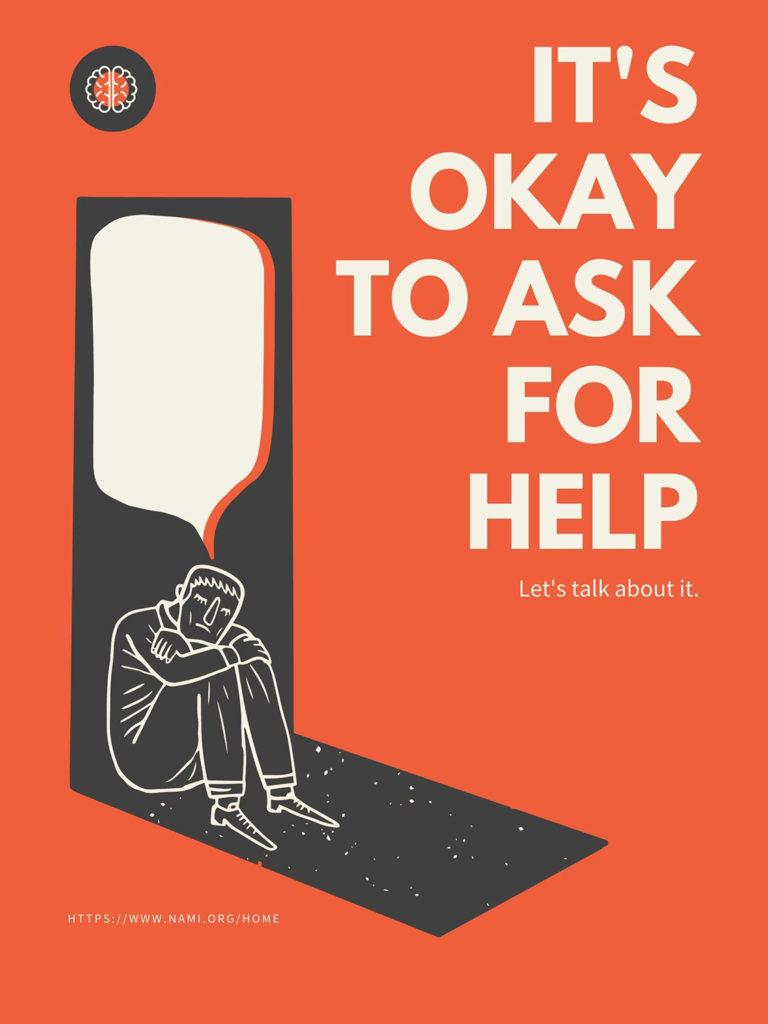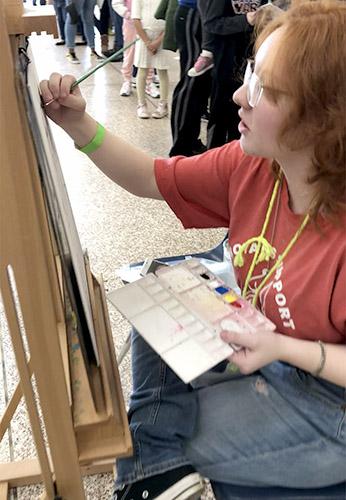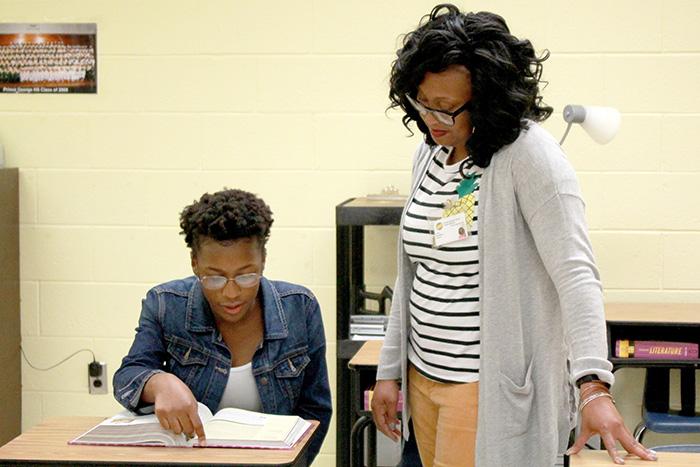Palms sweating, heart thumping against his rib cage, he can feel the words on the tip of his tongue. He knows what he wants to say, but his brilliant responses come out lapsed and choppy. Welcome to the life of senior Marquis Grisham.
Ever since elementary school, Grisham has had issues with stuttering, a speech impairment that affects over 3 million Americans, and is “four times more likely to affect males than females.”
And although stuttering can be a communication barrier that makes it “hard to speak with people, as time passes” Grisham “doesn’t think about it” and tries to “just be himself”.
New teacher Leas Hamilton also has a close connection with stuttering. Her mom, brother, and uncle all having a fluency disorder.
“As long as I can remember I’ve been my mom’s voice,” Hamilton said.
“It used to be bad, to the point where she could not say anything, so I would have to just talk for her, she would write [what she wanted to say] down on a piece of paper, and I would say it for her. I don’t know what she did at work, but any time we were out, I would be her voice,” Hamilton said.
“I’ve been working on different strategies in my meetings, and I like planning out what I’m going to say to [help me] with future jobs,” Grisham said, in reference to career planning.
Having a Stutter Awareness Day is important because it gives us a way to bring awareness of the disability. It is a disorder and nothing to make fun of.
An understanding of this disability reinforces the fact that “everybody is different in their own way, and it’s something that makes certain members of my family unique,” Hamilton said.
In 1998, October 22 was established as International Stutter Awareness Day (ISAD), with this year’s slogan being “growth through speaking.” This day is intended to educate people about this complex disorder, work toward the prevention of stuttering in children, let people know that help is available, and promote research to find the causes of stuttering, according to ISAD. Although ISAD has only been around for sixteen years, organizations like The Stuttering Foundation have been committed to this cause since the 1940s.
When dealing with peers with a speech impairment Hamilton says you should “treat them normally, and if they are having trouble communicating with someone, just wait for them, don’t try to rush them, just wait for them to get their words out, cause they know what they want to say, they just can’t say it as fast as you and me.”
Grisham tells his peers that he and other individuals with a stutter still have a “voice, mind, arms, and legs. We just can’t speak like everybody else, we’re a little different.”
The Stuttering Foundation asks that supporters of individuals with this disability wear a blue ribbon or the color blue on October 22st, 2019, to show support and solidarity.































